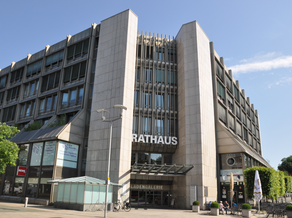We have less information on Hölderlin from his second stay in Homburg. The arduous return journey from Bordeaux on foot and the death of Susette Gontard on June 22, 1802 caused a deep break in Hölderlin's life. Many friends had distanced themselves from him, only Sinclair still stood by him. Sinclair therefore brought him back to Homburg in June 1804 in the hope that Hölderlin would recover there and return to the fruitful days of his first stay in Homburg.
However, when Sinclair was arrested on February 26, 1805 for a suspected conspiracy against the Elector of Württemberg and deported to Ludwigsburg, Hölderlin was completely alone in Homburg. He was even threatened with extradition to Württemberg, as he had taken part in a politically conspiratorial meeting there with Sinclair on June 19, 1804.
Hölderlin's health, which was already very poor, deteriorated considerably as a result of these circumstances. In addition, almost all of his friends had left him and his relationship with his mother was extremely strained. For this reason, Hölderlin was hardly in any condition to write poems or letters during his second stay in Homburg. When Sinclair returned to Homburg after his acquittal from the charge of high treason, he found a completely confused Hölderlin. In August 1806, he wrote to Hölderlin's mother that he could no longer provide for Hölderlin financially. She then decided to have him admitted to Dr. Autenrieth's psychiatric clinic in Tübingen. On September 11, 1806, Hölderlin's fate was sealed: he was forcibly placed in a carriage and taken to Tübingen. The dream of further years as a poet in Homburg was finally shattered.







